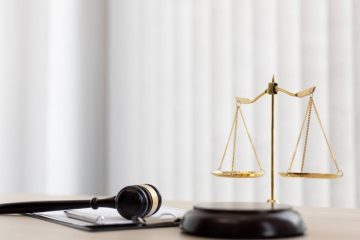“Private attorney general” is an increasingly common term in legal literature, yet few understand exactly what an attorney general does.
AGs often utilize their offices to advocate for the citizens of their state. Their advocacy can take various forms, from submitting legislation to their legislature and testifying before federal or state legislative committees, to issuing guidance or formal opinions to State agencies and officials on specific matters.
The Office of the Attorney General
The Attorney General serves as New York’s chief legal officer, leading the State Department of Law as its largest law firm and providing advice and defending most state agencies, boards, commissions and colleges against litigation from private individuals or entities. They are also charged with prosecuting cases assigned by county prosecutors as well as filing civil suits brought against their agencies or individual State officers or employees when ethically permissible.
The Office conducts public service and education initiatives consistent with the goals of the Attorney General’s policy goals, such as Operation: Allied Against Meth, identity theft prevention and senior fraud. In addition, it oversees the Crime Victims Compensation Fund as well as providing formal legal opinions requested by state officers or legislators regarding state law issues.
The Attorney General’s 13 regional offices provide essential defense, regulatory and affirmative justice functions to communities across New York State. Letitia James, former New York City public defender is the current Attorney General.
The Agency Handbook
Attorneys general are an exceptional kind of law officer. Serving as chief legal officers for their state governments and legislatures, attorneys general serve as counselors while acting in the public interest – with episodes touching upon consumer protection, antitrust enforcement, criminal justice issues and much more.
Common law jurisdictions typically utilize an attorney general (plural: attorneys generals) as the main legal advisor of government, not to be confused with Solicitor General, who represents executive branch before Supreme Court.
Attorneys General possess broad investigative powers, enabling them to investigate alleged violations of state or federal law. But recipients of overly broad or inappropriate investigative subpoenas have recourse in challenging them; as an elected political figure, her choices to defend state laws may depend on electoral ambitions rather than duty fulfillment.
The Attorney General’s Office
The Attorney General’s Office oversees the state’s largest public law firm, serving all state agencies, boards and commissions, the Governor and Legislature as well as providing legal services for legal action brought or defended on behalf of the state; providing formal legal opinions requested by state officers or legislators; investigating fraud, corruption and other crimes; bringing and defending lawsuits on behalf of the state; initiating or defending lawsuits brought or defended on its behalf and investigating these as well.
The Office works tirelessly to protect older citizens who may be targeted by scam artists, as well as supporting programs and projects dedicated to harm reduction, domestic violence reduction and environmental preservation. Furthermore, they play an instrumental role in combatting opioid-related crime through prosecutions and coordinated investigations throughout the state.
At a federal level, AGs play an essential role. They actively participate in administrative proceedings at various government agencies, propose legislation for consideration by Congress and sue when necessary to enforce federal policies. Their work is coordinated through several divisions: leadership center; consumer fraud prevention; environmental protection; terrorism and cyber security.
The Department of Justice
The Department’s primary objective is to uphold United States law and safeguard its citizens. To achieve this goal, they enforce federal civil rights statutes; prosecute violations thereof; and oversee agencies responsible for safeguarding air, water, and land resources across the Nation.
The Department combats terrorism through investigations and prosecution of terrorists, collaboration with foreign partners to identify and counter threats at home and abroad, training assistance partner nations in developing rule of law programs.
The Department works to protect and promote civil rights for all Americans, such as women, minorities, children, individuals with disabilities, service members, residents in public institutions and others. Attorney General also ensures that private institutions receiving federal financial assistance comply with civil rights laws. Finally, she advocates for affordable healthcare services through leading her department’s efforts to bring down energy costs and increase access to lifesaving services for families. The Executive Office for United States Attorneys (EOUSA) serves as a liaison between the attorney general and 93 United States attorneys located across 94 federal districts – such as DC, Guam, the USVIs, and Puerto Rico.


